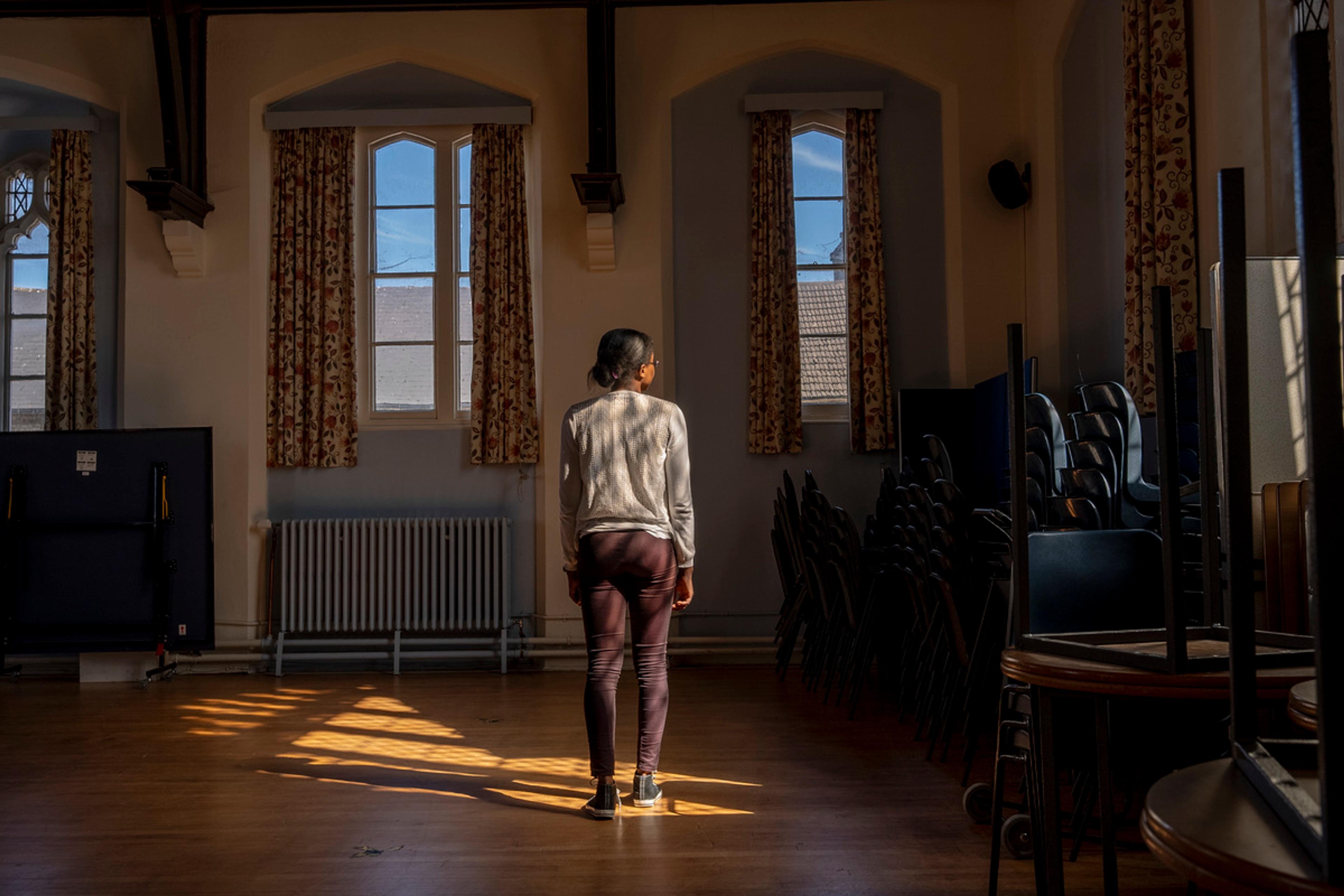On 28 August 1999, I landed in Toronto, Canada, from Belgrade and the war-torn Yugoslavia. I came for graduate studies in philosophy but was eager to stay for good. I struggled to adjust to a new country; I understood English well but could not speak it fluently. The realisation that I suddenly felt like only half of my former self haunted me for months and gradually dissipated only as I learned to adapt to a new way of life in which, unlike at home in Belgrade, it was unacceptable to drop by someone’s house unannounced, indoor smoking was a big no-no, and carrying coffee to a workplace in a plastic cup was the norm. Within the first year or so, I learned to navigate the subway system, that ‘sorry’ is a must even when somebody else bumps into you, and that a handshake is acceptable only the first time you meet somebody (insisting after that is just weird). As I was adjusting to my life in Toronto, I assimilated the acceptable norms of my new home, and the sensation of being a complete outsider gradually subsided.
Stories of immigration illustrate to what extent our communities, their norms, values, customs, and even very simple things like greetings and small talk shape the way we feel on an everyday basis – and how suddenly we lose the sense of security and belonging once we uproot and move to the foreign land. The question that interests me, however, is: does adhering to the ‘rules’ of a new home, ie embracing a new way of life, itself produce that much-needed sense of belonging? Does adopting the manners and habits of the local place itself suffice to fulfil this need?
Some psychological studies seem to suggest that this is the case; that our emotional regulation is far better when we adopt automatically and use unconsciously the values of our society. This seems to suggest that embracing the norms of the new place as our own should help us feel that we belong wherever we move, provided we adapt effectively. But I don’t think the answer is a straightforward ‘yes’, in fact the answer is more paradoxical. Whether we ever feel that we belong hinges on the nature of the norms prevalent in the place we live. So, while adapting well to a new culture may help us regulate emotions and feel better in our new home, sometimes such adaptation fails our need to belong simply because the norms we adjust to are such that they prevent us from sharing emotions with others – which is essential for the sense of belonging.
The feeling of belonging depends on the nature of cultural and social norms
On the surface level, when we become competent practitioners of one particular culture, we can predict what other people will do and say in a particular situation and what they, in turn, expect us to do and say. But to truly adapt, human beings need to be able to do more than predict the behaviour of others. Adult immigrants yearn to be accepted; they want to belong. But to do that they need to embrace the cultural, moral and social novelties of their adoptive homeland as their own. Psychologists have shown that when immigrants incorporate the values and customs of a new home as their own this makes, on an everyday basis, their emotional and social regulation easier. Unconscious self-regulation is far less costly in terms of energy and effort than self-regulation via cognitive and conscious psychological mechanisms. For instance, if we believe it is acceptable for a woman to become a CEO of a company, when we see it happening, we will not feel negative emotions. But if we believe this is not the place for a woman (and we live in a society that largely accepts it), we will use extra energy to hide the negative emotion of disapproval we feel. Immigrants who immerse in the new culture so that they move beyond old (unacceptable) beliefs tend to report a heightened sense of wellbeing. Additionally, for the feeling of belonging one must also make connections with other people that go beyond superficial encounters.
But what happens when people take on the norms of their adoptive homeland but do not develop a sense of belonging? Can there be such cases, and what kind of insights do they offer regarding our need for belonging and the specific cultural norms at play? In other words, are there societal norms specific to particular societies that could diminish the human need to belong?
Cross cultural studies have shown that the feeling of belonging depends on the nature of cultural and social norms, and not merely on the level of adjustment. For instance, a 2005 study led by the psychologist Richard M Ryan aimed to measure the correlation between the sharing of emotions with others (ie, emotional reliance on others), cultural norms (norms that prescribe if such sharing is acceptable), and the overall wellbeing of individuals. Ryan and his colleagues asked participants about their contact with their families and peers to share negative or positive emotions. Participants came from four countries: Russia, the United States, Turkey and South Korea. The researchers measured emotional reliance on others in these countries by how often people initiated an emotional exchange. Russia topped the list in the frequency of exchange, followed closely by the US and Turkey, while South Korea came last. Admittedly, there were some differences between countries in terms of who people preferred to contact for support. In Russia, for instance, they opted for family members, while in the US, they turned to friends. But people in both countries shared their feelings with both family and friends, and such sharing was considered to be good. In contrast, in South Korea, sharing of emotions was discouraged. South Koreans expressed the belief that they should not burden their family with their troubles because they had enough troubles on their own.
Since most people learn socially acceptable behaviours allowing them to blend in and emotionally regulate on an everyday basis, the next question that presented itself to researchers is whether a lack of emotional reliance on others would keep the level of wellbeing among South Koreans high simply because that was the norm in their society. In simple words, they wondered if wellbeing was going to be at the same level as in Russia and the US, even though people did not bond with families as much through emotional sharing. But they found cultural norms in this case were detrimental for the sense of wellbeing. That is, although South Koreans accepted the norm of their culture not to share their emotions, this norm thwarted their sense of wellbeing, ie they reported lower satisfaction with life and their overall psychological health was lower.
What this means is that bonding via emotional sharing is essential for our sense of belonging and wellbeing, but the cultural norms we adopt from our community may decrease it. The same applies to the communities of the distant past. In the 4th century, the time of early Christianity and the ‘desert fathers’, the rules of everyday life in monastic communities were harsh. For example, the desert father Evagrius Ponticus discouraged his fellow monks from being social and chatting to others when they were struck with melancholia, boredom and restlessness (acedia). Evagrius had his reasons for this advice – he was worried that excessive socialising would lead monks astray from their godly path. But Evagrius was also an extraordinary psychologist and was aware of the danger of isolation. Therefore, while discouraging monks from initiating socialisation, he simultaneously instructed all brothers to pay attention to and watch out for each other: pray for them, approach them, and show them their affection if they notice that they are downcast. Yet the imperative to stay in the cell when depressed could have made the situation worse for some. Similarly to South Koreans, monks who lived in the desert found themselves caught between the norms of their group and their basic need to bond with others; this need remained unfulfilled, even though they respected and embraced the rules of their community.
Finally, despite the appeal of the claim that all cultures are made equal, some conditions apply. While effective adaptation may satisfy the human need to belong across diverse cultures, there are limits to these variations. Ultimately, for better or worse, some cultures and their norms place greater burdens on their members.








